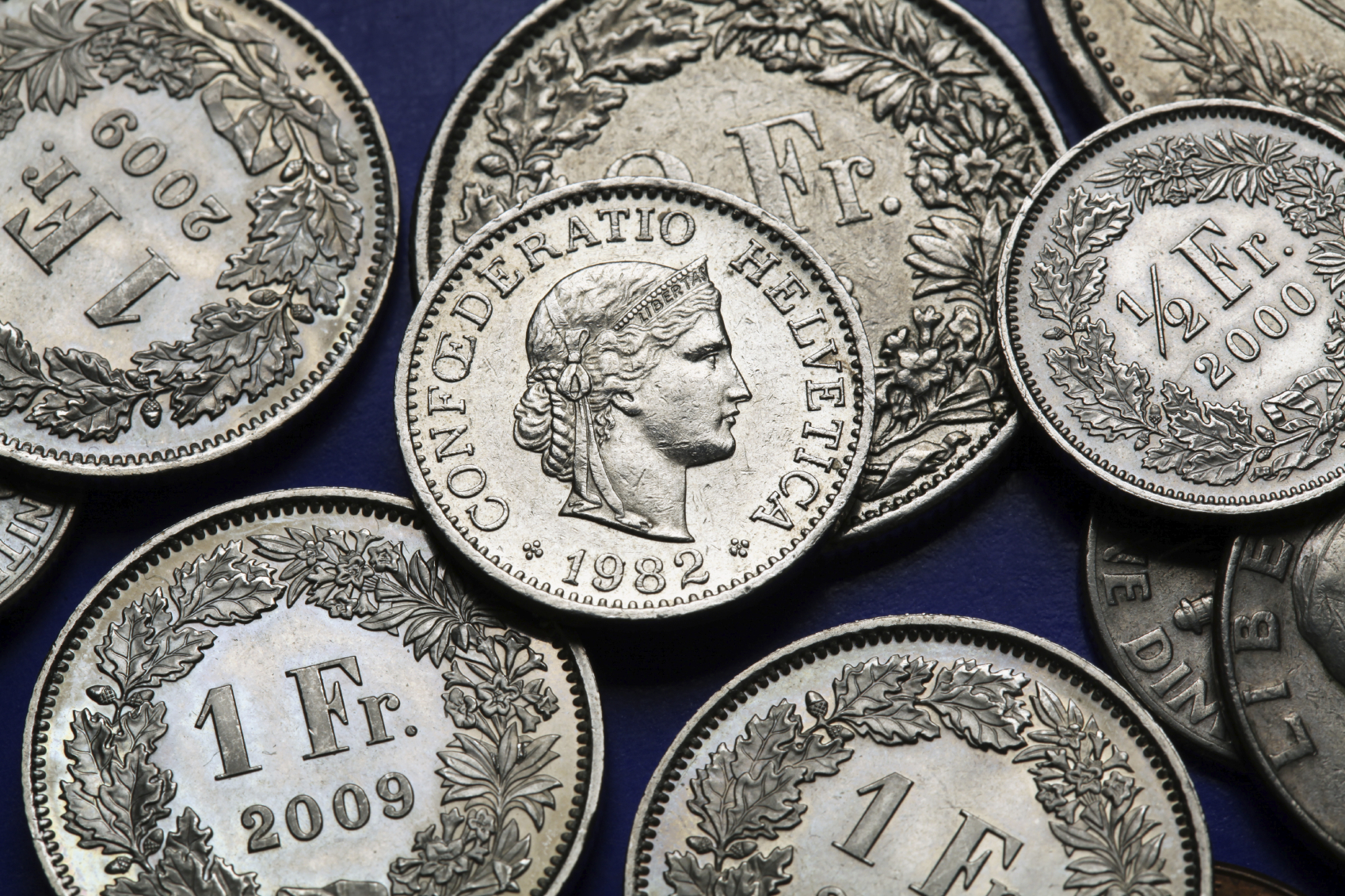Chaos in the currency markets
Switzerland's central bank roiled the markets by abandoning its three-year cap on the value of the franc against the euro

A free daily email with the biggest news stories of the day – and the best features from TheWeek.com
You are now subscribed
Your newsletter sign-up was successful
Financial journalists are notorious for "resorting to excitable language" to describe humdrum market events, said the Financial Times in an editorial. But what happened to the Swiss franc earlier this month "defies the reach of hyperbole." In a move that caught global markets utterly by surprise, Switzerland's central bank abandoned its three-year cap on the value of the franc against the euro. "Within minutes," the franc shot up 39 percent, before settling down to a still jaw-dropping 15 percent increase for the day. "Mayhem ensued," said Matt O'Brien at The Washington Post. Switzerland's stock market plunged 10 percent, and at least two currency-trading companies went out of business before the day was through. It was easily "the biggest single-day move for a rich country's currency" in the past 40 years.
To understand why this move caused such "chaos in the currency markets," a little economic history is in order, said John Cassidy at The New Yorker. As the euro debt crisis gained steam in 2011, global investors increasingly sought safety in the Swiss franc, which drove up its value precipitously. That hurt Swiss exporters, so the central bank put a ceiling on the franc's strength, essentially printing money and using those funds to buy large holdings of euros and other currencies. But because the euro is so unstable, the bank's bet became too big and too risky to maintain; at the end of last year, its foreign currency reserves "were worth about 80 percent of Swiss GDP." Ultimately, "Swiss policymakers gave in." Unfortunately, with the cap now gone, the country faces the very real "prospect of an economic downturn"; exporters, pharmaceutical firms, and ski resorts will be particularly hard hit since their goods and services are now vastly more expensive than those of foreign competitors.
Even if you have nothing to do with the franc, "you should feel a shiver of fear," said Paul Krugman at The New York Times. "Switzerland's monetary travails illustrate in miniature just how hard it is to fight the deflationary vortex now dragging down much of the world economy." Even before the Swiss move, deflation was "emerging as the major economic bogeyman of 2015," said Matt Phillips at Quartz. Europe, Japan, China, and the U.S. "are all seeing slowing price increases or outright price declines," and the franc's increase means Switzerland will also "slip deeper into deflation." Lower prices might appeal to consumers, but "if the economy were a car, deflation is sort of like driving with the parking brake on." It discourages investment, makes debt tougher to pay back, leads consumers to delay purchases, and otherwise pushes down growth. And what's really worrisome is that after three years of fighting it, the Swiss have "effectively thrown in the towel."
The Week
Escape your echo chamber. Get the facts behind the news, plus analysis from multiple perspectives.

Sign up for The Week's Free Newsletters
From our morning news briefing to a weekly Good News Newsletter, get the best of The Week delivered directly to your inbox.
From our morning news briefing to a weekly Good News Newsletter, get the best of The Week delivered directly to your inbox.
Consider this yet another aftershock of the global financial crisis, said David Jolly and Neil Irwin at The New York Times. For the past six years, "aggressive monetary activism" by the Federal Reserve and European Central Bank "has rescued the global economy over and over." But there are limits, and when the banks do act, they create "a range of spillovers" that global policymakers "will be grappling with for a long time to come."
A free daily email with the biggest news stories of the day – and the best features from TheWeek.com